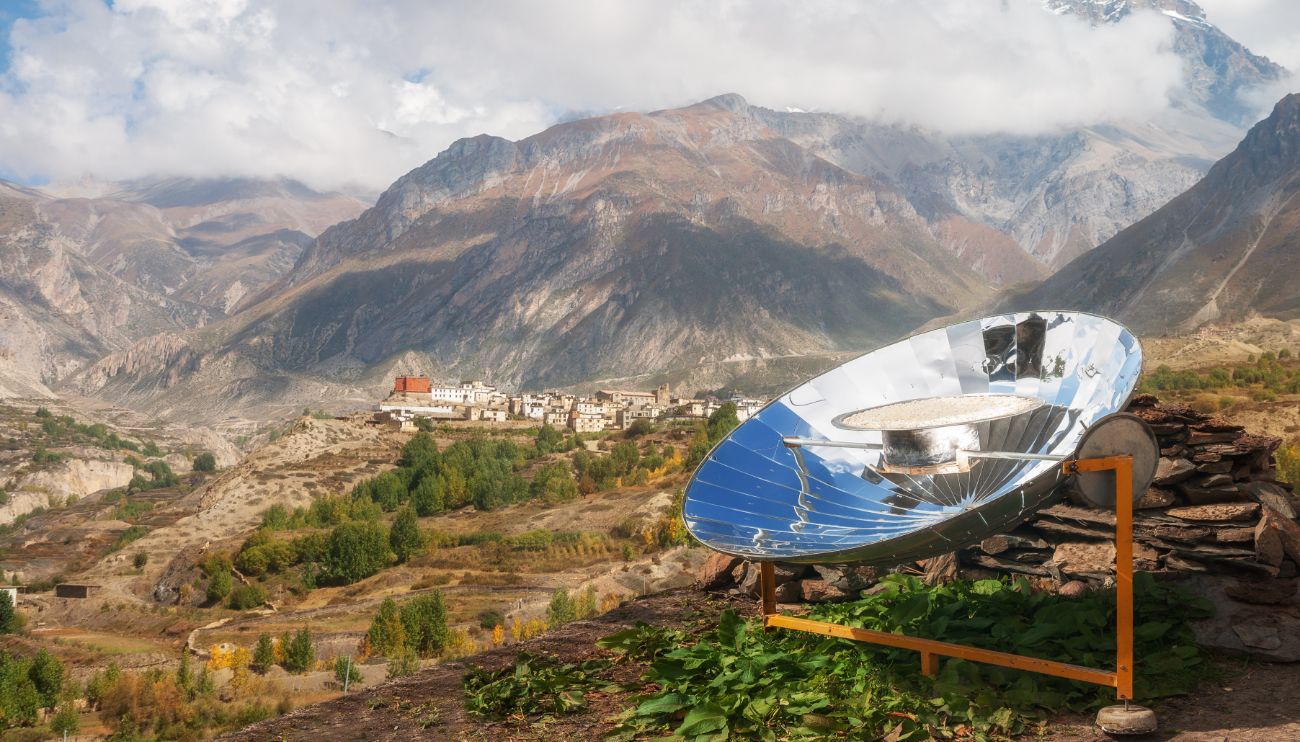The 2024 SDG7 progress report shows that at the current rate of progress, 1.8 billion people will remain without access to clean cooking in 2030. In addition to significant health and other negative development outcomes, this lack of progress has significant implications for climate change.
Climate-related emissions from cooking with polluting fuels account for 2% of global CO2 emissions, and 58% of global black carbon emissions due to the soot when biomass is burned in traditional cookstoves. In Sub-Saharan Africa where clean cooking access deficit is the highest, renewables-based clean cooking solutions can offer environmental benefits, fuel and cost efficiency, as well as co-benefits arising from supply chains across other sectors such as agriculture.
Recognising the intricate linkages between households energy use and climate, many governments in access-deficit countries included clean cooking in their Nationally Determined Contributions (NDCs), targeting increased use of electric cooking, improved cookstoves, biogas and sustainable biomass. Apart from the fact that over a quarter of Sub-Saharan African countries do not have clean cooking in their NDCs, the existing targets still need to be more ambitious, more quantifiable, and more specific. There is also a lack of corresponding measures for achieving them.
Furthermore, there is heavy dependence on external funding for the realisation of the targets; Africa – where the clean cooking challenge is concentrated – has received less than 2% of global investments in renewable energy over the last two decades.
Concrete clean cooking targets in NDCs
Concrete and ambitious targets for clean cooking in NDCs can attract climate finance, a key driver of growth of clean cooking sector that many countries are yet to benefit from. The more detailed, specific, and accountable the target is, the more likely countries can attract the needed investments to achieve them.
Two sets of measures are needed to translate the NDCs into an opportunity for delivering on climate action and SDG7 goal of universal access to modern energy services. The first set entails support towards target setting, while the second set entails support in realising the targets.
Through technical and advisory support, access-deficit countries can incorporate clean cooking targets in their NDCs and increase those ambitions. Key areas of support include:
- Aligning NDC targets with domestic policies. Lack of alignment of NDCs with national policies and commitments is a key area of improvement needed to enhance credibility and effectiveness of the targets. An update of the policy documents, or of the NDCs can close the gap.
- Linking NDCs to investment policies related to climate and energy transition plans. This can help provide greater certainty regarding investment opportunities and potential projects that are available in the country. As of now, clean cooking is still left out of mainstream energy planning and investment decisions.
- Creating opportunities for knowledge exchange and capacity building is necessary to allow countries that are left behind to learn from the experiences of those that have developed their NDCs.
From target setting to implementation
Many low and middle-income countries are relying on development finance to support the implementation of measures outlined in their NDCs. These countries can be supported in the following ways:
- Identifying investment needs and sources. Only around a third of developing countries have identified investment needs to meet their NDCs, and even fewer have proposed potential financing sources for their climate mitigation actions, including for clean cooking.
- Creating convening platforms that bring together investors and the target countries for investments.
- Technical assistance and capacity building to pursue carbon finance as an opportunity to develop their clean cooking sectors. Carbon finance for clean cooking continue to be concentrated in a small number of countries and enterprises. Supporting countries to access the market would widen their opportunities to finance the implementation of their NDCs.
Conclusion
NDCs provide the opportunity to mainstream renewables-based clean cooking in climate actions while concurrently achieving universal energy access (SDG7) and energy transition goals. There is an urgent need for the international community to support access-deficit countries through the improvement of their NDCs; by including concrete clean cooking targets in their NDCs, or increasing their ambitions if the targets are already included. Most importantly, support must be given to turn those ambitions into actions, to ensure everyone benefits from a just, fair and equitable transition.
For more discussion on renewables-based clean cooking, watch a session of IRENA’s 15th Assembly on 11 January 2025, titled ‘Meeting SDG7 and Climate Ambitions through Renewables-based Clean Cooking’, to be livestreamed here.
Source link
www.irena.org


